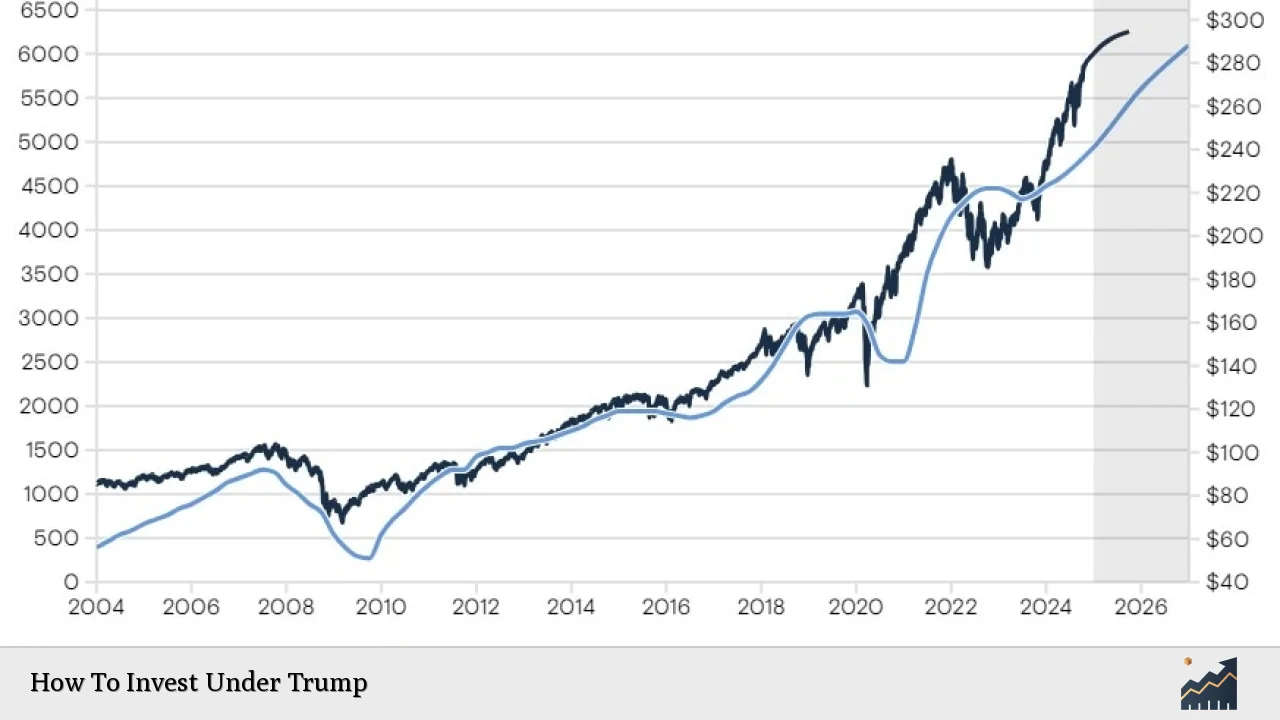Investing under the Trump administration presents unique opportunities and challenges for investors. With a focus on deregulation, tax cuts, and trade policies, understanding the landscape is crucial for making informed investment decisions. This article outlines key strategies and sectors to consider when navigating investments during this administration.
| Key Focus Areas | Investment Opportunities |
|---|---|
| Deregulation | Energy, Financials, Infrastructure |
| Tax Cuts | Corporate Growth, Small-Cap Stocks |
| Trade Policies | Manufacturing, Domestic Companies |
Understanding Trump’s Economic Policies
To effectively invest during Trump’s presidency, it is essential to grasp his economic priorities. The administration is likely to continue advocating for lower corporate taxes, aiming to stimulate economic growth. This approach could benefit large corporations, especially in sectors such as technology, healthcare, and energy.
Deregulation is another hallmark of Trump’s policies. By reducing government intervention, industries like energy, banking, and manufacturing may experience lower costs and higher profits. This creates potentially attractive investment opportunities in these sectors.
Infrastructure development remains a focus, promising substantial investments that could benefit companies involved in construction and technology. If this agenda continues, it could create opportunities for investments in various industries.
Sector-Specific Investment Strategies
Certain sectors are more likely to thrive under the Trump administration. Understanding these dynamics is crucial for navigating investment decisions.
- Energy Sector: The administration has consistently favored fossil fuel production. Policies aimed at reducing regulations on oil and gas industries could create a favorable environment for energy stocks. Investors should be aware of potential volatility in oil prices due to global trends toward sustainability.
- Financial Sector: Banks are expected to benefit from looser regulations and higher interest rates. This environment could lead to increased lending and profitability for financial institutions. Citigroup is one bank that may perform well under these conditions due to its diverse interests.
- Technology Sector: While trade policies may impact technology companies reliant on international supply chains, initiatives supporting American innovation could foster growth in emerging fields such as artificial intelligence and cybersecurity.
- Infrastructure Investments: With a strong emphasis on infrastructure projects, companies involved in construction and building materials may see significant growth. Investors might consider exchange-traded funds (ETFs) or stocks focused on infrastructure development.
Navigating Trade Policies
Trump’s administration is expected to implement protectionist trade policies, including tariffs on imports from countries like China. These tariffs could impact consumer prices domestically while benefiting certain industries such as manufacturing.
Investors holding Chinese shares or funds may face challenges as tariffs could reduce profit margins and demand for their products in the U.S. Conversely, domestic manufacturers may gain a competitive edge due to reduced foreign competition.
It’s crucial to monitor trade negotiations closely as escalating tensions could lead to market volatility. Understanding the implications of tariffs on various sectors will help investors make informed decisions.
Managing Risks in a Volatile Environment
Investing under Trump requires a nuanced approach that balances opportunities with risks. While certain sectors may benefit from favorable tax policies and deregulation, others could face challenges from trade policies or regulatory changes.
Diversifying investments across various sectors can mitigate risks associated with potential market fluctuations. Staying informed about policy shifts will enable investors to capitalize on opportunities while protecting their portfolios from adverse effects.
Flexibility is essential as economic policies evolve. Investors should remain adaptable to changing market conditions while maintaining a long-term perspective.
The Impact of Fiscal Policy
The anticipated increase in fiscal deficits due to government spending without corresponding revenue growth may drive inflationary pressures. Higher inflation could limit the Federal Reserve’s ability to cut interest rates, keeping bond yields elevated.
Investors should consider how rising bond yields might affect fixed-income investments. As inflation rises, traditional bond investments may become less attractive compared to equities that can potentially offer higher returns in an inflationary environment.
Understanding the interplay between fiscal policy and market dynamics will help investors navigate potential challenges while identifying growth opportunities.
Capitalizing on Corporate Tax Cuts
Trump’s focus on corporate tax cuts aims to stimulate economic growth by reducing the tax burden on businesses. This strategy could boost profitability for U.S.-focused companies, particularly small-cap stocks that are heavily domestic-oriented.
Investors should look for companies poised to benefit from lower taxes and increased government spending. Sectors such as healthcare, technology, and consumer discretionary may see significant growth as companies reinvest savings into expansion initiatives.
Monitoring corporate earnings reports will provide insights into how tax cuts are impacting profitability across different sectors.
FAQs About How To Invest Under Trump
- What sectors are likely to benefit from Trump’s presidency?
Energy, financials, infrastructure, and certain technology sectors are expected to thrive. - How will trade policies affect my investments?
Protectionist trade policies may create volatility; domestic manufacturers could benefit while international companies may face challenges. - What impact do corporate tax cuts have on investments?
Corporate tax cuts can boost profitability for U.S.-focused companies, particularly small-cap stocks. - How should I manage risks while investing under Trump?
Diversification across various sectors can help mitigate risks associated with market fluctuations. - What role does fiscal policy play in investing strategies?
Increased fiscal deficits may drive inflation; understanding this relationship helps identify growth opportunities.
Investing under Trump’s administration requires careful consideration of his policies and their implications for various sectors. By understanding the economic landscape and adapting strategies accordingly, investors can navigate this dynamic environment effectively.

